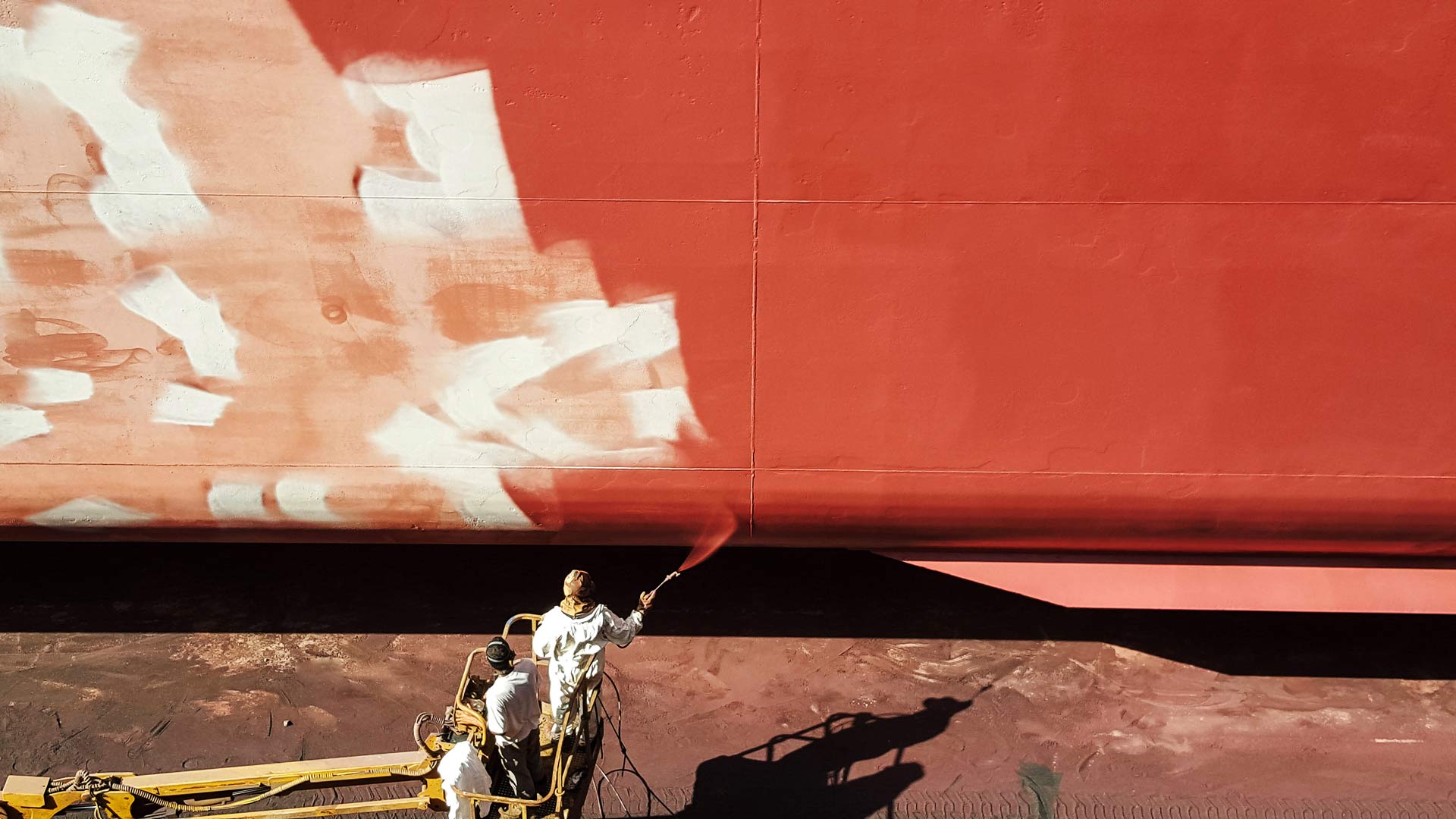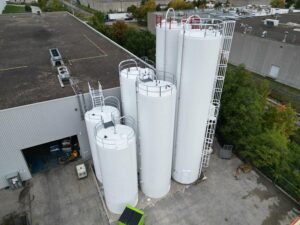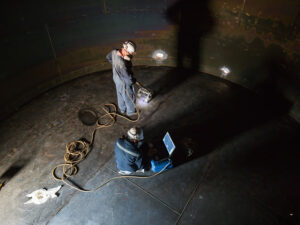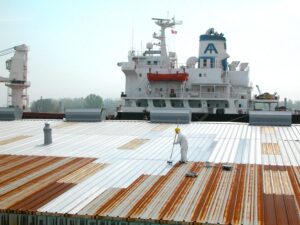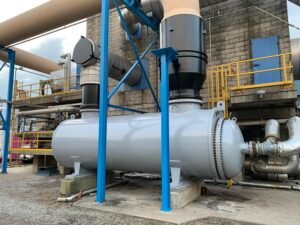Introduction to Southern Ontario Industrial Painting
Southern Ontario, a bustling area known for its diverse economies and vibrant cultures, is home to a wide array of industrial facilities that require specialized painting services. Industrial painting plays a crucial role in maintaining the structural integrity and aesthetic appeal of these facilities, ensuring they can withstand operational environments.
Overview of Industrial Painting
Industrial painting focuses on the protective and aesthetic coating of structures and equipment within industrial settings. In Southern Ontario, industrial painting is vital for maintaining manufacturing plants and warehouses, as it helps surfaces withstand environmental challenges such as temperature fluctuations, moisture, and chemical exposure.
Importance of Industrial Painting in Southern Ontario
Industrial painting enhances the visual appeal and durability of Southern Ontario’s industrial structures, providing protection against weather, corrosion, and wear. In a cities where weather conditions can be harsh, proper painting ensures the longevity of facilities and helps to reduce long-term maintenance costs.
Types of Industrial Painting Services
Industrial painting services in Southern Ontario are diverse, covering various techniques to meet the needs of different sectors.
Surface Preparation Techniques
Proper surface preparation is critical in industrial painting, ensuring that paint adheres well and lasts longer. Techniques like waterjet blasting, abrasive blasting, sandblasting, and chemical cleaning are commonly employed to clean surfaces and remove contaminants.
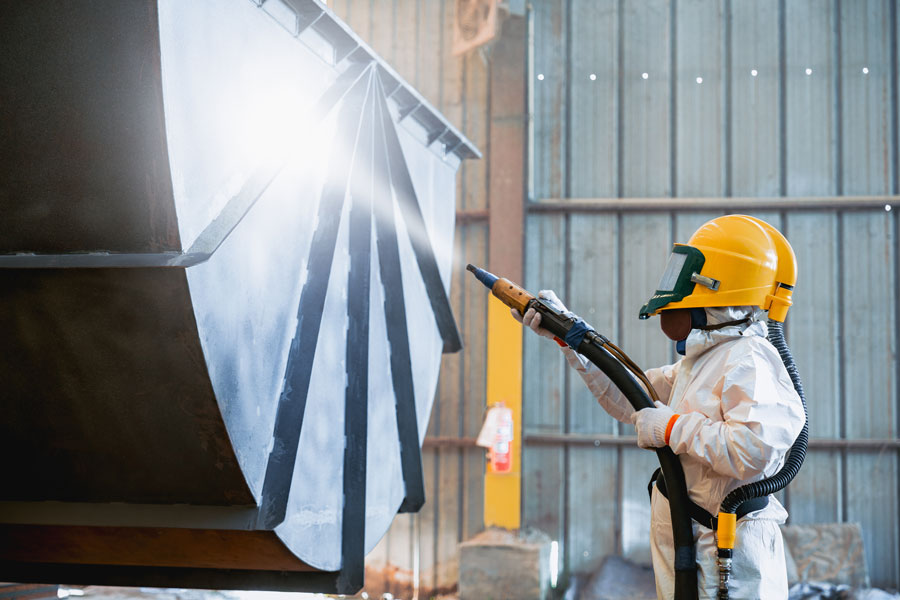
Protective Coatings and Their Applications
Protective coatings are essential in industrial settings, shielding materials from corrosion, chemicals, and environmental wear. Southern Ontario’s industrial painting professionals offer a variety of coatings, such as epoxy and polyurethane, tailored to different operational environments.
Specialized Painting Services (e.g., Anti-Corrosive, Fireproofing)
Specialized services like anti-corrosive and fireproofing coatings are vital for protecting industrial facilities. Anti-corrosive coatings prevent rust in metal surfaces, while fireproofing ensures that structures meet safety regulations.
Key Factors Influencing Industrial Painting Projects
Key factors in industrial painting projects include selecting the right materials for environmental exposure, proper surface preparation, and strategic scheduling to minimize operational disruption. Adherence to local regulations and safety standards is critical in ensuring project success.
Choosing the Right Industrial Painting Contractor
Selecting the right contractor is essential for ensuring a successful industrial painting project.
Qualities of a Reliable Contractor
A reliable contractor will have extensive experience, adhere to safety regulations, and communicate effectively throughout the project. Transparency in costs and timelines is also crucial for avoiding unexpected delays.
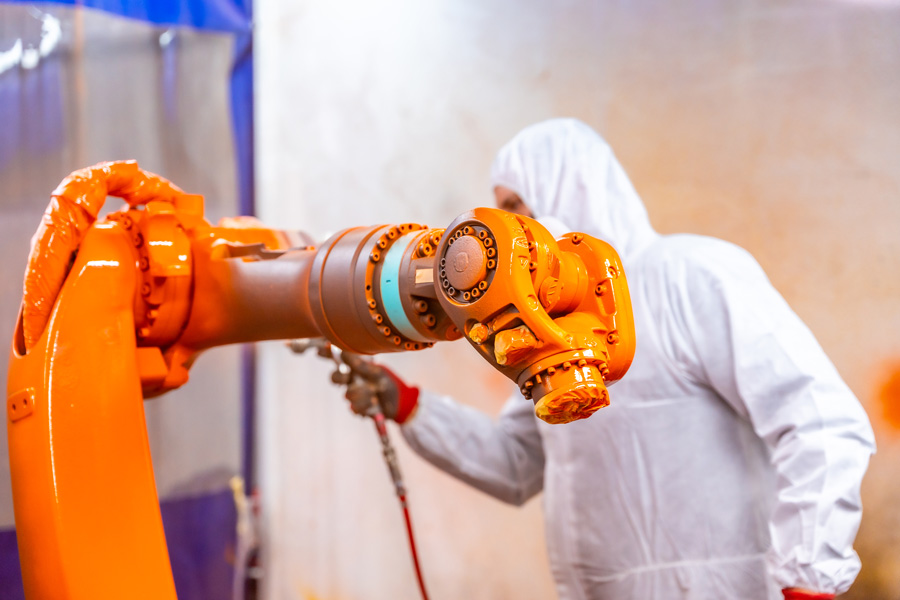
Questions to Ask Potential Contractors
When choosing a contractor, inquire about their experience with similar projects, licensing, insurance, and references. It’s also important to understand their painting processes and the materials they use.
Importance of Local Expertise in Southern Ontario
Local expertise is invaluable when tackling industrial painting in Southern Ontario. Contractors’ familiar with the various city’s climate, regulatory environment, and industrial landscape will be better equipped to handle the unique challenges of the area.
Planning and Managing an Industrial Painting Project
Effective planning and management are crucial for the success of industrial painting projects.
Budgeting for Your Project
Proper budgeting is essential, considering factors such as materials, labor, and potential contingencies. Obtaining quotes from experienced contractors helps in evaluating realistic costs.
Timeline and Scheduling Considerations
Careful scheduling minimizes operational downtime and ensures the project runs smoothly. Regular assessments and progress meetings are important for keeping the project on track.
Safety Protocols and Compliance Regulations
Adherence to safety protocols and compliance with local regulations, such as the Occupational Health and Safety Act (OHSA), WHMIS or Building Codes and Local Bylaws ensuring worker safety and environmental protection during the project.
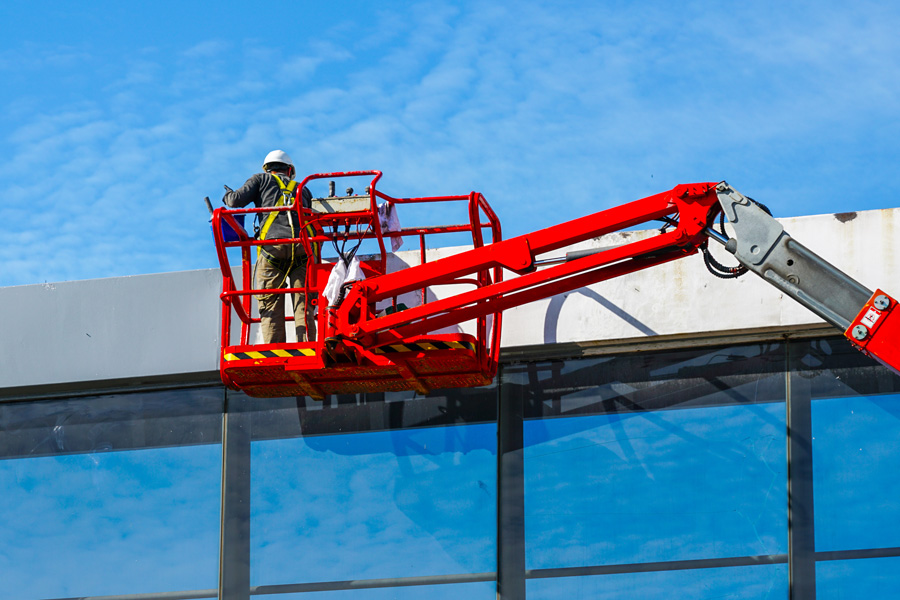
Common Challenges in Industrial Painting
Industrial painting projects in Southern Ontario face several challenges, from weather-related issues to surface preparation difficulties.
Weather-Related Issues
Southern Ontario’s fluctuating weather can affect paint drying times and adhesion, requiring careful planning to avoid costly delays and ensure the quality of the finish.
Surface Condition and Preparation Challenges
Surface preparation is labor-intensive but essential for paint adherence and longevity. Ensuring proper cleaning and priming of surfaces is key to a successful project.
Maintaining Operations During Painting
Minimizing disruptions during painting requires strategic planning and clear communication with all stakeholders. Designating work zones and employing efficient techniques can help maintain productivity.
Trends and Innovations in Industrial Painting
Staying informed about the latest trends and innovations in industrial painting is critical for success.
Eco-Friendly Painting Solutions
Eco-friendly paints and coatings are becoming increasingly important in Southern Ontario. These low-VOC options enhance durability and reduce environmental impact, making them ideal for industrial applications.
Advances in Paint Technologies
Technological advancements have led to the development of paints that offer superior durability and resistance. New application techniques, such as automated spraying, improve efficiency and quality.
The Future of Industrial Painting in Southern Ontario
As Southern Ontario’s industrial sector evolves, the future of industrial painting will focus on sustainability and technological innovation, with an emphasis on eco-friendly materials and advanced application methods.

